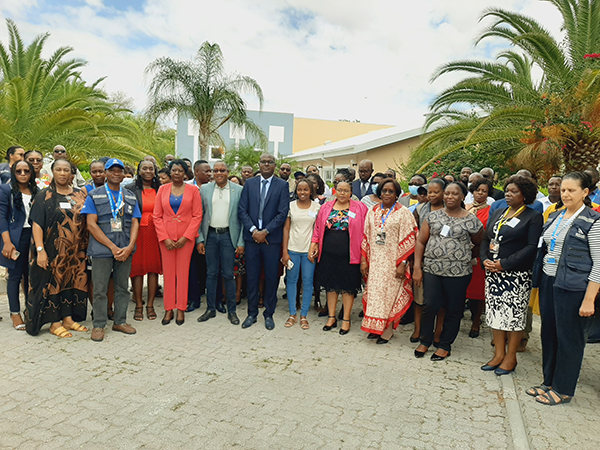Festus Hamalwa
ONDANGWA - The lifesaving collaboration between Namibia and Angola to prepare for and respond to health emergencies continues as the two neighbours discuss strengthening interventions.
Among others, Namibia has made significant strides in fighting HIV/Aids and TB and the policy of inclusivity, which allows Angolan nationals to receive treatment in Namibia, contributed to this achievement.
“Namibia and Angola must comply with the International Health Regulations 2005 (IHR), by ensuring that appropriate capacities are in place to prevent, detect and adequately respond to any emergencies of public health concern,” said Health ministry’s executive director Ben Nangombe.
He was speaking on Monday at the cross-border meeting between the Omusati, Kunene, Ohangwena and Oshana regions of Namibia, and the Namibe and Cunene provinces of Angola.
Namibia and Angola are signatories to the IHR, which mandates member states to strengthen core capacities for health security. All state parties are required by the IHR 2005 to develop the required public health capacities to detect, assess, notify and report public health events.
Namibia and Angola’s governments, in collaboration with the World Health Organisation (WHO), are currently undertaking a cross-border meeting on severe acute malnutrition, an expanded programme on immunisation and infectious diseases. The weeklong gathering is a platform for both southern African nations to deliberate on cross-border health issues of mutual concern.
“Diseases can quickly spread from one country to another or from one part of the world to another.
“All state parties are required by the IHR 2005 to develop the capacity to respond promptly and effectively to public health risks and public health emergencies of international concern,” he stressed.
Nangombe said countries with common borders are encouraged to consider entering into bilateral and multilateral agreements to prevent and control international disease transmission.
“Over the years, the ministry has responded to several outbreaks such as Cholera, Anthrax, Crimean Congo Hemorrhagic Fever (CCHF), Malaria, Hepatitis E, Measles, Rift Valley Fever, and the current Covid-19 pandemic, which at its peak, produced high morbidity, mortality, and devastating socio-economic impacts.
“One of the key mechanisms to strengthen our nation’s surveillance capacities is through dialogue such as this one (cross border meeting), by sharing best practices, identifying gaps and collectively devising strategies to address them,” he added.
WHO country representative Charles Sagoe-Moses said the outcome of this meeting would contribute immensely to the success of this initiative for both countries and strengthen the collaboration between the two countries. “This is important to prevent, detect, and respond to public health emergencies and to comply with relevant international treaties, including the IHR 2005,” he said.
Sagoe-Moses also added that WHO Namibia remains available to provide support and enhance good collaboration between Angola and Namibia.


